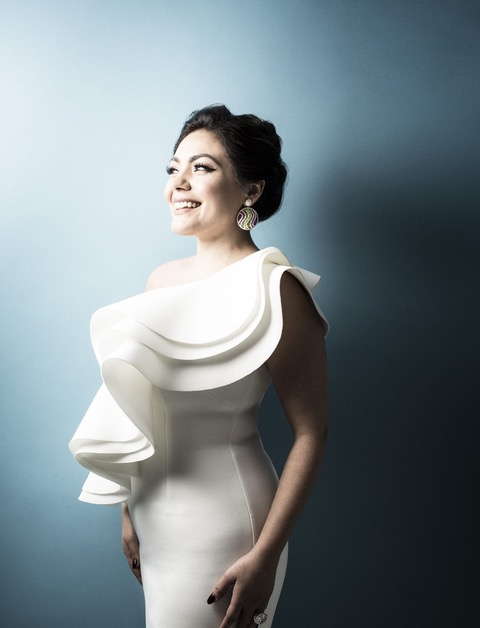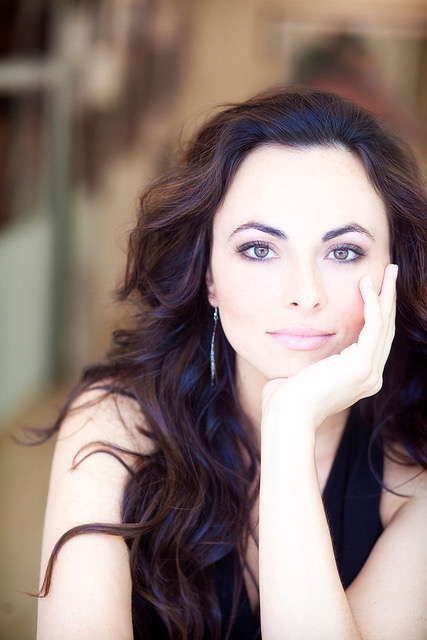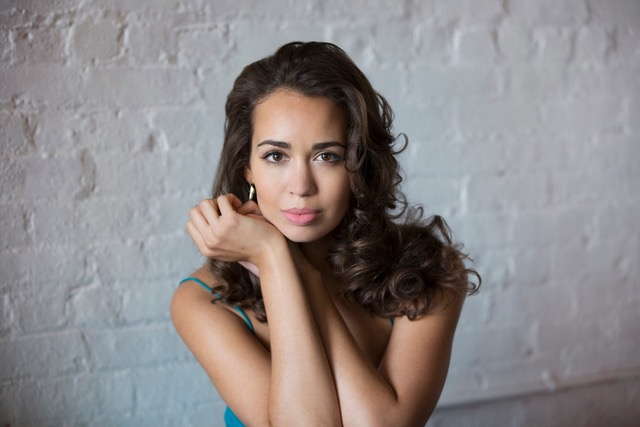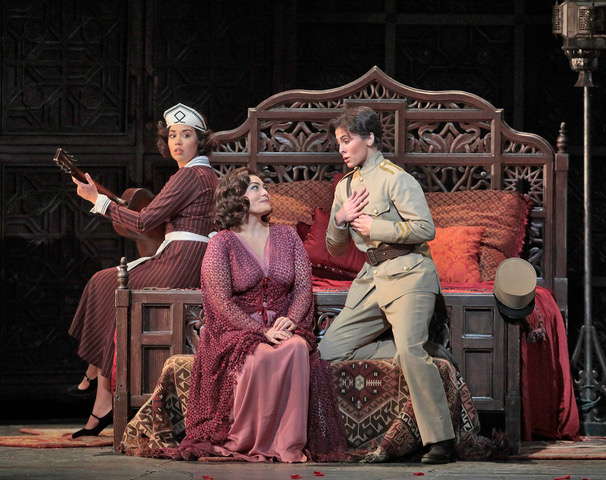- Mary Mogil
- Anne Boyd
- Georg Schinn
- John Rutter
- Lutoslawski
- Christoph Koch
- Drake University
- Alexander Shelley
 WORD SEARCH: Can you solve Allan Rae's classical music word search puzzles? We're currently publishing one per month.
WORD SEARCH: Can you solve Allan Rae's classical music word search puzzles? We're currently publishing one per month.
 DISCUSSION: What is a work? John Dante Prevedini leads a discussion about The performing artist as co-creator, including contributions from Halida Dinova, Yekaterina Lebedeva, Béla Hartmann, David Arditti and Stephen Francis Vasta.
DISCUSSION: What is a work? John Dante Prevedini leads a discussion about The performing artist as co-creator, including contributions from Halida Dinova, Yekaterina Lebedeva, Béla Hartmann, David Arditti and Stephen Francis Vasta.
Three Divas
MARIA NOCKIN reviews a streamed recital from Versailles, given by Ailyn Pérez, Nadine Sierra, Isabel Leonard, Vlad Iftinca and Pablo Sáinz-Villegas
On Saturday 22 May 2021, three Metropolitan Opera divas, sopranos Ailyn Pérez and Nadine Sierra, and mezzo-soprano Isabel Leonard, joined in song at one of Europe's cultural landmarks, the Opéra Royal du Château de Versailles, France. Accompanying them were pianist Vlad Iftinca and guitarist Pablo Sáinz-Villegas in a program of opera arias and ensembles in Italian and German, as well as songs in Spanish. This event showed the world that the glorious 250-year-old French theater, inaugurated for Marie Antoinette's royal wedding, was still a functioning venue for opera.
Wearing a striking open-necked turquoise gown, Nadine Sierra began the program in this exquisite petite opera house with a sparkling rendition of 'Juliet's Waltz Song' from Gounod's Roméo et Juliette. Clad in a form-fitting black, off-the-shoulder, sequined chiffon gown, Isabel Leonard gave an enchanting rendition of the pants-role aria from Mozart's Le Nozze di Figaro, 'Voi che sapete che cosa è amor' (You who know what love is). Completing the diva-trio, Ailyn Pérez appeared in a pale pink strapless gown trimmed with ostrich feathers to delight the audience with the ravishingly beautiful aria 'Ebben? Ne andrò lontana' (Well then, I'll go far) from Catalani's rarely heard opera, La Wally. She showed her technical skill with a messa di voce in which she started softly, let the voice grow to a dramatic forte and then brought the volume back down to a sweet pianissimo.

Ailyn Pérez. Photo © Dario Acosta
Sierra returned with a difficult aria from Mozart's Don Giovanni usually reserved for dramatic voices, 'Non mi dir bell'idol mio' (Say not, my beloved). Singing with lyrical tones and the freshness of youth, she never fell into a single one of the many vocal traps that inhabit this aria. Leonard was not to be outdone in difficulty, however. Vivaldi's 'Agitata da due venti' from Griselda is a quintessential Baroque aria that calls for every bit of coloratura the performer can muster. Leonard's decorations were clear and accurate. Pérez opted for singing of nature and setting a mood with 'Stridono lassù. Liberamente lanciati' (The birds screech. They dart freely) from Leoncavallo's Pagliacci. She enabled her audience to enjoy a few moments of freedom with the otherwise doomed Nedda.
It was time for a lighter tune. Sierra and Leonard sang the Barcarolle from Offenbach's The Tales of Hoffmann, 'Belle nuit, ô nuit d'amour' (Beautiful night, O night of love) with close harmony that caused their vocal lines to thread in, out, and around each other. The lighting was a participant in this scene, too. The upper boxes of the theater were lit with patterns that made them resemble clouds in the night sky.

Isabel Leonard. Photo © Becca Fay
Leonard and Pérez then offered a light-hearted rendition of Fiordiligi and Dorabella's tuneful duet 'Prenderò quel brunettino' (I'll take the dark-haired fellow) from Mozart's Così fan tutte. Pérez and Sierra sang a fascinating version of 'Mira, o Norma ... Sì, fino all'ore estreme' (See, o Norma ... Yes, up to the last hour), the duet with the unforgettable bel canto melody from Bellini's Norma. Sierra's low notes were a pleasant surprise. She has a huge vocal range.

Nadine Sierra. Photo © Merri Cyr
The sweetness of Pérez's tones were no surprise; her voice is a treasure to be enjoyed as often as possible. I would like to see her as Norma and most especially as the Marschallin. The trio, 'Marie Theres'! ... Hab' mir's gelobt' (Have praised me) from Richard Strauss's Der Rosenkavalier with these artists was positively captivating.
As for Leonard's 'Seguidilla' from Bizet's Carmen, her interpretation was charming but she did not turn into the wild creature I expect to see in that role. Rossini's Little Spanish Song: 'En medio a mis colores' (In the middle of my colors) was much more appropriate to her style.
El barbero de Sevilla, a masterful zarzuela by Jerónimo Giménez, debuted in Madrid in 1901. In this comedy, a young woman's singing ambitions are thwarted by her family. Sierra gave a lively rendition of 'Me llaman la primorosa' (They call me the primrose) that showed her fine coloratura ability. Pérez countered with the poignant Estrellita (Little Star) by Manuel Ponce. The Divas concluded their program with two gorgeous trios: Bésame Mucho (Kiss me a lot) by Consuelo Velázquez and 'Cielito Lindo' (Beautiful Sky) by Quirino Mendoza y Cortés.

The three divas at New York Metropolitan Opera - from left to right: Nadine Sierra, Isabel Leonard and Ailyn Pérez. Photo © 2018 Ken Howard
Pianist Vlad Iftinca accompanied each selection on the first half of the program. His playing was a fine underpinning for each artist's choices. Guitarist Pablo Sáinz-Villegas added his tuneful and rhythmic talents to the mix for the Spanish songs and made them significantly memorable.
Copyright © 25 May 2021
Maria Nockin,
Arizona USA

MORE NEW YORK METROPOLITAN OPERA ARTICLES
MORE CLASSICAL MUSIC ARTICLES ABOUT FRANCE


